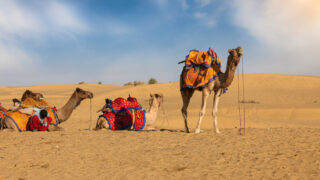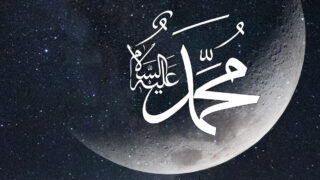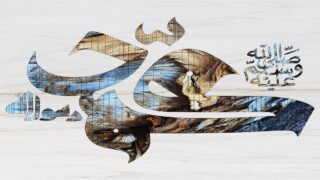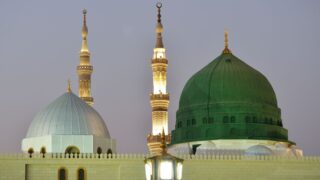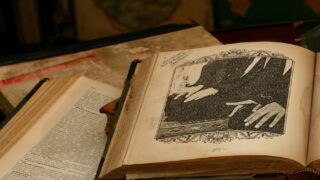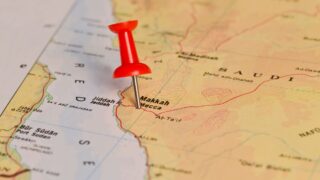We have previously talked about the sources of the Messenger of God’s money, his wealth and his way of earning, and the necessity of money in human life, and the Messenger of God was an infallible human being who supported his family with his money and upheld his ties of kinship and good sympathy to people, as well as beautifying his family and delegations, and he was truthful may the blessings and Peace of Allah be upon him – when he said: “The best of you is the best of you to his family, and I am the best of you to my family.” For this reason, and the events that follow or joined with it in the biography of the Prophet, we have proven during previous episodes that he, may God’s blessings and peace be upon him, was earning to suffice his supplies and the needs of his family and his guest, and he was not asking people, as He was not poor and weak, rather it is correct that he was rich, well-off, and ascetic, and the evidence for this fact is many, narrated in the books of the Sahih of Sunan and Masaneed.
We may pause with an incident that is a witness of the situation that Abdullah bin Omar tells us on the authority of his father Omar bin Al-Khattab, may God be pleased with him, who says: “Omar bin Al-Khattab saw the suit of Sayraa at the door of the mosque, so he said: O Messenger of God, if you bought this, you would wear it on Friday And to the delegation, if they come to you, then the Messenger of God, may God bless him and grant him peace, said: “It is worn by those who have no share in the Hereafter.” The hadith [1] . The veil mentioned in this incident was silk, which was not permissible for Muslim men to wear. In this hadith, there is an allusion to the Prophet, may God’s blessings and peace be upon him, love to beautify and adorn himself with the best clothes, and his possession of it for this purpose according to his own worldly interests.
And since one of the purposes of the legislative mission of the Prophet, may God’s blessings and peace be upon him, was to explain what came in the Holy Book, in conformity with the Almighty’s saying:… And We revealed to you the message that you may make clear to the people what was sent down to them and that they might give thought. Ibn Ashour exaggerated, by making the Prophet’s explanation, may the blessings and peace of God be upon him, explanation of the Qur’an’s provisions from the rulings and morals as if it were the original cause of revelation of the Qur’an. This explanation is represented in the Sunnah of the Messenger, may God’s blessings and peace be upon him, and his biography. Rather, it takes the rule of the original, which is the Qur’an. That is why it came in the hadith: (Verily, I was given the Qur’an and the like of it with it). The guidance of the Prophet, may God bless him and grant him peace, was in the position of explanation and clarification.
This statement calls for us to stop and seek the guidance of the Prophet, may God bless him and grant him peace, in zakat.
1 – Ibn al-Qayyim in Zad al-Ma’ad described the guidance of the Prophet, may God’s blessings and peace be upon him, with regard to zakat and charity as the most complete guidance in its time, amount and quorum. And in terms of who to pay it and to whom is to be paid, he considered in this the interest of the rich and poor, he mandated on the rich that which will suffice the poor without prejudice.
2- He made Zakat obligatory in four types of money because it is the most revolving money among them in his era, and their need for it is essential.
One of them: plants and fruits.
The second: Animals of cattle, which are camels, cows and sheep.
The third: the two substances that make up the world, and they are gold and silver.
Fourth: Trade funds of all kinds.
3- He made it obligatory to pay zakat once a year, and that is on other than crops and fruits, and he made the payment time for crops and fruits when they are complete and leveled. Ibn al-Qayyim says: “This is the fairest of all, as its obligation every month or every Friday harms the owners of wealth, and its obligation once in a lifetime harms the needy, so it was not fairer than its obligation once every year.”
4- He determined the required amounts of zakat according to the diligence of the owners of money and their collection and the ease and difficulty of that, so one-fifth is required in the ore (20%) without taking into account the year, and half of the fifth is required, which is the tenth in the fruits and crops if the land is plowed at a lower cost (10%), and half the tenth if Watering it was at cost, organicist, and workers (5%).
5 – A quarter of a tenth (2.5%) is required in trade, because the cost of trading, managing and related to trade is greater.
6- It was from his guidance, may God’s blessings and peace be upon him, if he knew from a man that he was one of the people of zakat, he gave him, and if someone from the people of zakat asked him and did not know his condition, he gave him after telling him that there is no share in it for the rich or the strong who is capable to acquire..
7 – One of his guidance was to distribute the zakat to the deserving people who were in the country of money, and what was left over from them was carried to him, so he divided it, peace and blessings of God be upon him
8- It was not his guidance to send his collectors except to the people of the apparent wealth of livestock, crops and fruits.
9- He used to send assessors that would estimate the palms on the people of the date-palms, and on the people of the vineyards their vineyards, and looking at how much of it came as wasq [2], then calculating them from the zakat according to its measure, and al-Khars: guesswork.
10 – It was not from his guidance to take zakat from horses and slaves, mules, donkeys, vegetables, pots, straws, fruits that are not eaten or stored except for grapes and fresh dates, for he used to take zakat from it as a whole and did not differentiate between fresh and dry.
11- It was not from his guidance to take the most beloved of their wealth, but rather through the middle.
12- He forbade the giver of charity to buy his alms, and he would allow the rich to eat from it if the poor gift it to him.
13- He sometimes borrowed for the interests of the Muslims for charity, and sometimes he borrowed the alms from its owners.
14- If a man came with zakat, he would supplicate for him, saying: “O God, bless him and his camels” [n], and sometimes he would say: “Oh God, bless him” [Q].
15- As for voluntary charity, the Prophet, peace and blessings of God be upon him, was the greatest of all people in charity with what he possessed, and he did not overestimate anything he gave for the sake of God Almighty, nor did he belittle it, and no one asked him for something with him but he gave it, whether little or much, and his giving was the gift of one who does not fear poverty. Giving and charity was the most beloved thing to him, and his happiness and joy in what he gave was greater than the pleasure of the taker of what he took, and he was the most generous of people with goodness, his hand was like a sent wind.


